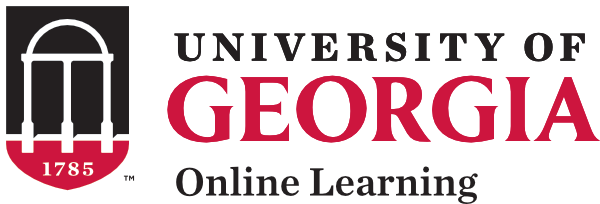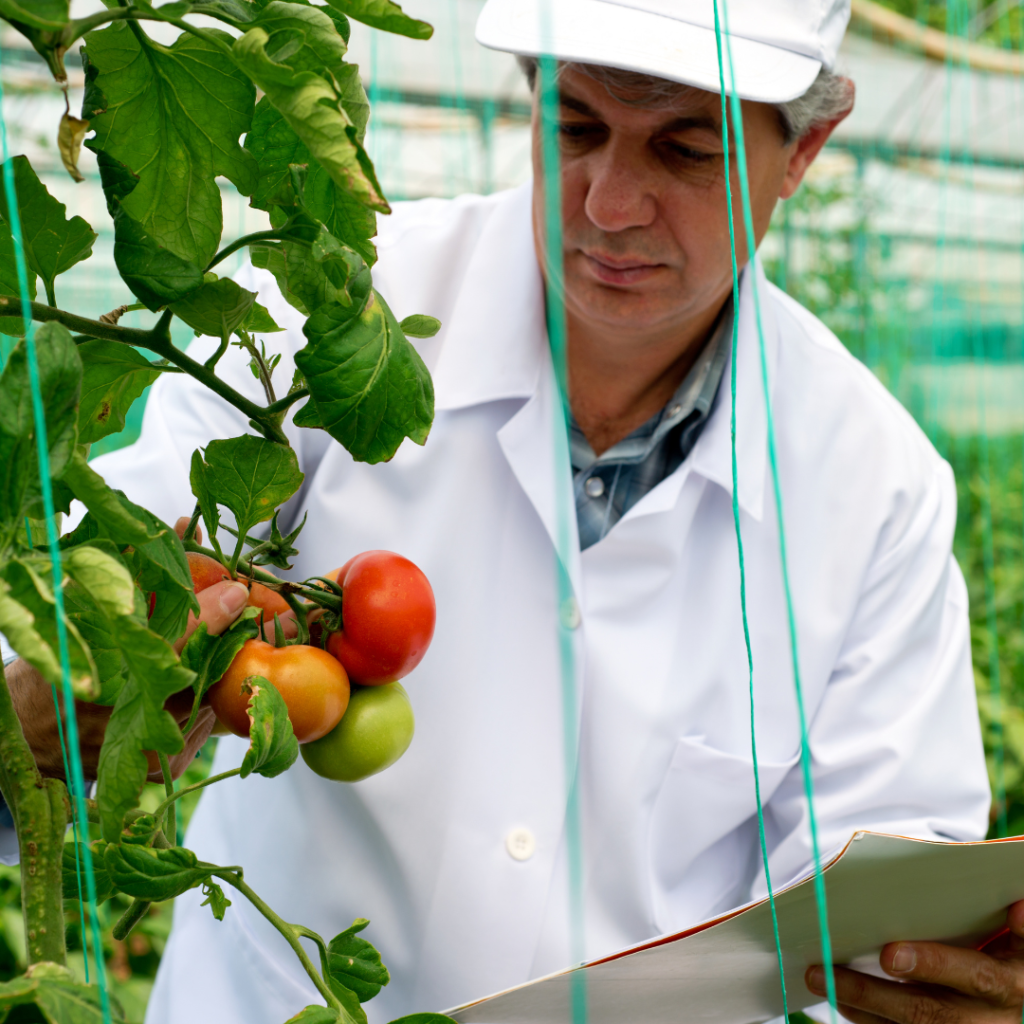15 Best Online Master’s in Food Science Technology

Find your perfect college degree
The food industry in the US is a massive part of the economy, ushering in a staggering $996.40 billion in revenue as of 2023. At the core of this sector lies the vital work that food science and technology professionals do to advance the field.
As food scientists and technologists, they apply scientific disciplines to improve food safety, nutrition, and availability. It often encompasses microbiology, chemistry, nutrition, and even engineering. It is also part of their job to develop ways for processing, preserving, packaging, and storing food while ensuring everything adheres to specifications and regulations dictated by the industry and the government.
Those who want to enhance their credentials and become food science research leaders, innovators, and technical experts in this field may want to consider earning a master’s degree in Food Science Technology. This prepares students to meet the growing needs of various institutions, including governments and private organizations.
The Labor Statistics Bureau says the job outlook for food scientists and technologies is quite positive as it is expected to grow by 6%.
Quick audio summary:
Overview
An advanced Food Science program may often be offered on campus, but specific programs are designed for working professionals. It is good for busy students to earn their master’s degree by enrolling in a Food Science online program where flexibility and convenience are guaranteed.
The online delivery option makes the Food Science degree program accessible to food professionals and nutrition professionals who may be able to work through the food science courses at their own pace, anytime and anywhere.
Methodology
Professionals seeking to enhance their credentials and become food science research leaders, innovators, and technical experts in this field may want to consider earning a master’s degree in Food Science Technology.
The online graduate programs we picked stand out because of these academic features that meet the growing needs of various institutions, including governments and private organizations.
- Facilitated online or as a blended master’s program requiring graduate students to attend virtual classes and meet some on-campus coursework requirements,
- Uses a Learning Management System for convenient class attendance, coursework access, and communication with professors,
- Features a faculty or teaching staff composed of seasoned Food Science professionals who hold terminal degrees in Food Science Technology,
- Runs financial assistance programs in the form of federal aid, scholarships, and other funding options,
- Approved by accrediting agencies that set the academic standards of Food Science Technology online,
- Recognized by Food Science Technology groups and industry associations that advance the discipline, its future professionals, and current experts who contribute to the field,
- and, Receives good feedback from online Master’s in Food Science Technology graduate students and alums who have gone on to become professionals.
Learn about our ranking process by checking out our Methodology page.
Top Master’s Degrees in Food Science Technology Programs

Ohio University

Athens, Ohio
Master’s in Food and Nutrition Sciences
Ohio University offers a Master’s in Food and Nutrition Sciences degree program that has both on-campus and 100% online delivery formats. This food science degree program can be completed in as little as 12 months.
The degree program’s core curriculum covers topics in diet and chronic disease, statistics, and research. The program also explores a variety of topics that includes food biotechnology, the gut microbiome, as well as pediatric nutrition, sports nutrition, and geriatric nutrition.
Students can also choose to either take on elective courses that broaden their scientific knowledge of food and nutrition or add (stack) a graduate degree in a complementary area, such as healthcare leadership, clinical informatics, health policy, or Lean Six Sigma.
Aside from the possibility of earning their degree in 12 months, the program also has no thesis requirement, and students get access to an array of services, such as academic advisers, and writing assistance.
Bowling Green State University

Bowling Green, Ohio
Bowling Green State University offers a Master of Food and Nutrition degree program. It is offered on-campus or 100% online and is ideal for those who seek advanced studies in food and nutrition who have a bachelor’s degree in food, nutrition, or a similar related field.
The program emphasizes preparing students to use evidence-based research, as well as critically evaluating emerging resources related to food and human nutrition. The curriculum includes coursework in research methods, macro and micronutrients, community, and public health nutrition, as well as clinical nutrition.
Students can choose to take additional topics in nutrition or add electives from other areas of study, such as education, public health, and psychology. Students can also choose between a thesis and a non-thesis track to culminate their degree.
University of Southern Mississippi

Hattiesburg, Mississippi
Master’s in Nutrition and Food Systems
The University offers a Master’s in Nutrition and Food Systems degree program. It is offered entirely online and is designed to offer students with advanced studies in the application of nutrition and dietetics practice. The program is around 30-33 credit hours in total.
The program’s curriculum integrates practice-based research projects into its courses. The program’s coursework also covers all aspects of dietetics practice, which includes clinical, management, and community aspects.
The program features two emphasis areas: Applied nutrition & Food Systems and Dietetics Practice. The former is fully online, while the latter integrates a required Dietetics Internship that prepares students for becoming entry-level registered dietitians. The program culminates in a capstone research project, where students choose a topic from their coursework that they expand upon.
University of Maine

Orono, Maine
Master of Science (MS) in Food Science & Human Nutrition
The University of Maine offers an Online MS in Food Science and Human Nutrition. The program has a total of 30 credit hours and is offered 100% online. The typical completion time for the degree program is around two years.
The program features a curriculum that emphasizes not only advanced knowledge in the fields of Food Science and Human Nutrition but also professional development and research and communications skillsets.
Courses cover a variety of theory and practice-based topics, which include advanced topics in human nutrition, communication practice as it relates to nutrition and food technology, research design, and food production & food preservation. Electives also cover varied topics that include nutrition and aging, sustainability, functional nutrition, and more.
The degree doesn’t require specific bachelor’s level academic backgrounds, but as standard, bachelor’s degrees must have been awarded by accredited colleges/universities. A 3.0 GPA out of a 4.0 scale is also required for admission, and students have to maintain the same GPA throughout the program. The degree also has no thesis requirement for graduation.
Arizona State University

Tempe, Arizona
Master of Science (MS) in Regulatory Science – Food Safety
The program takes a look at food safety regulations at all levels of government, from local to state, to federal. The program’s coursework also covers a wide range of food safety aspects and skills, which include inspections, hazard analysis, observing safe food practices, and handling food emergencies.
The program’s courses also cover other vital topics such as global regulation, skills in regulatory writing, responsible clinical research, and more.
The program’s coursework also aligns with the content typically found in the Certified Professional – Food Safety certification exam, which is administered by the National Environmental Health Association, ensuring students get prepared with the right academic foundations.
Indiana University of Pennsylvania

Indiana, Pennsylvania
Master of Science in Food and Nutrition
The Indiana University of Pennsylvania offers a Master of Science in Food and Nutrition, a 36-credit hour degree program that helps expand students’ practice in health-related fields or complements their background in a number of related disciplines, which includes biology, education, exercise science, even marketing, and journalism.
The program has an additional optional Education track that students can take, which takes up to around 18 credit hours. The Indiana University of Pennsylvania also offers the program in a related Dietitian-Nutritionist Program (DNP), which awards the MS in Food and Nutrition degree and gives students eligibility to sit for the registered dietitian-nutritionists national examination.
All students in the program are required to engage in research activities, except students enrolled in the DNP program. In this regard, students can opt to take a thesis or non-thesis option.
Johnson & Wales University

Charlotte, North Carolina
Master of Science in Food Safety
Johnson & Wales University offers a Master of Science in Food Safety degree program. The program is offered 100% online, with a completion time of 2 years on an accelerated schedule. Courses are eight weeks long each, and there are multiple start dates every year.
The JWU MS in Food Safety degree program features a curriculum that provides students with advanced-level training in a wide variety of food safety perspectives, which includes regulation, retail, and food processing. Students are trained in analytical skills that apply to decision-making processes in food safety regulation, as well as skills relating to identifying and helping address potential food safety problems.
The program’s coursework covers a number of critical topics, which include Epidemiology, Food Law, Food Safety Systems, and more. The program’s elective courses also align with prerequisite requirements that add to their preparations for obtaining a variety of professional certifications.
Culinary Institute of America

Hyde Park, New York
The Culinary Institute of America or CIA offers a Master’s Degree in Food Business. It is a program that puts a food focus on business education and is a unique, one-of-a-kind program offered only by the CIA. While it isn’t strictly a Food Science and/or Food Safety degree program, a good part of its curriculum invariably overlaps with much of the professional concerns regularly dealt with by the said programs, such as legal aspects, food systems, etc.
The program features asynchronous online courses for most of the program’s coursework; however, there are three credits devoted to 3 short on-campus residencies at the CIA’s California and New York campuses spread throughout the 2-year duration of the degree program. The program concludes with a capstone project that students develop together with faculty advisors and mentors.
University of Georgia

Athens, Georgia
The University of Georgia offers a Master of Food Technology program online. It aims to equip students with essential knowledge and skills when it comes to maximizing in-line processing efficiencies, improving food product quality and safety, and implementing good manufacturing practices, all the while keeping in line with the current regulations and HAACP practices.
The fully online food technology degree is a non-thesis master’s program that is designed for working professionals who want to learn from food industry professionals and food science and technology researchers.
The online courses in this program cover core areas such as fermentation, chemistry, microbiology, ingredients, packaging, processing, product development, and food regulation. Online students can also expect to gain up-to-date information on emerging trends and potential innovations in the food industry.
Interested applicants will need to have a bachelor’s degree in food science or another science-related field to get admitted into the program. Their graduate education is guaranteed to be of high quality as the University of Georgia earned accreditation from the SOCSCAC-Southern Association of Colleges and Schools Commission on Colleges.
University of Illinois Urbana-Champaign

Champaign and Urbana, Illinois
Master of Science in Food Science (Non-Thesis)
Another fully online Master of Science in Food Science program is available at the University of Illinois Urbana-Champaign. This program is a non-thesis track that is ideal for working professionals. Students are trained to apply the principles of science and engineering to ensure that the safety, quantity, quality, variety, and attractiveness of food are guaranteed.
Each semester, three courses are on offer. These courses include Food Product Design Theory, Advanced Food Microbiology, and more. Students can learn from a dedicated faculty who are committed to helping them become leaders in their professional careers.
The degree program is a good foundation for those who want to pursue meaningful and rewarding careers as food safety specialists, product innovation scientists, regulatory specialists, and supply chain resources, among many others.
Admission requirements into this program include a minimum undergraduate GPA of 3.0 and pre-requisite courses such as calculus, general chemistry, introductory microbiology, and more.
Kansas State University

Manhattan, Kansas
Kansas State University is one of the many higher learning institutions in the country offering a Master’s in Food Science online. This food science program is designed to help students prepare for a career in the food industry, often involving the designing, processing, and marketing of food products for global consumption.
The degree program emphasizes various disciplines, such as food microbiology, food chemistry, food safety, and food engineering, among others. Online students will find plenty of opportunities to work with a variety of food commodities, including meats, poultry, dairy, fruits, and vegetables. The courses in the program curriculum account for 34 credit hours, all of which are available 100% online.
Online core courses include Scientific Communication, Regression and Analysis of Variance, Principles of HACCP and HARPC, Quality Assurance – Food Products, Food Analysis, and Research and Development of Food Products, among others.
Washington State University

Pullman, Washington
Master of Science (MS) in Agriculture – Food Science
Washington University offers a Master of Science in Agriculture with a concentration in Food Science. This food science program has an online delivery option specially designed for agricultural professionals, practitioners, and educators who want to boost their careers in the field.
The flexible format of the online program means working professionals can quickly achieve their academic and career goals without compromising their blossoming careers.
In this program, students can take advantage of a solid curriculum that focuses on equipping them with practical knowledge and skills that they can readily apply in real-life situations.
They will also learn from courses specializing in essential disciplines such as food science, food industry practices, and business and management. Students develop a deeper understanding of the scientific and technical aspects of food research, development, manufacturing, and quality control upon graduation.
To earn the master’s degree, students must complete a total of 30 semester credits. The courses under the food science emphasis include Food Laws, Advanced Food Safety and Quality, Principles of Sustainability, and Food Quality Management, among others.
University of Southern California

Los Angeles, California
Master of Arts (MA) in Foodservice Management and Dietetics (online or in-person)
The MA in Foodservice Management and Dietetics from the University of Southern California is an excellent choice for those who want to be a leader in the evolving and in-demand field of food science. This program will help them gain knowledge and skills on nutritional, food service, and dietary aspects that are relevant in food service management settings.
The graduate program can be completed either online or in person on a full-time or part-time basis. Typically, students are able to finish the degree in two years of full-time study. They will learn the best practices in food safety and production and how to implement them, along with the expertise in producing and evaluating complex menus and formulating recipes.
Students can explore some elective courses such as Food, Culture, Disease, and Longevity, Food Production and Food Service Management, and Senior Living Foodservice Revenue Management.
Johns Hopkins University

Baltimore, Maryland
Master of Science in Food Safety Regulation
Johns Hopkins University offers a Master of Science in Food Safety Regulation online. This online degree program tackles the broad field of food safety regulations, covering aspects such as agriculture, imports, food production, and more.
Students in this program are expected to inspect and monitor processes, including fertilization, seed selection, pest control, storage and transport, food processing and production, labeling and advertising, and handling, preparing, and serving food.
This 10-course degree program can be completed within 20-36 months. Graduates of this program can pursue careers that involve legal and regulatory complexities, such as regulatory affairs managers, food scientists and technologists, and food science technicians, among others.
Mississippi State University

Starkville, Mississippi
Mississippi State University also offers an MS in Food Science, Nutrition, & Health Promotion with a Health Promotion concentration for practitioners who want to develop skills and competencies integral to health educators.
This program features food science courses such as Career Skills in Food Science, Nutrition and Health Promotion, and Nutritional Biochemistry of Foods. To successfully earn the program, students must acquire at least 33 hours. The program offers both the thesis track and the non-thesis track.
Students interested in applying to this program must meet some of the essential admission requirements, such as official transcripts showing a bachelor’s degree, a statement of purpose, and recommendation letters.

Frequently Asked Questions
What are the standard admission requirements when applying for a Food Science graduate degree program?
The admission requirements for a master’s program in food science often vary from university to university. Some schools have competitive criteria that often include GRE scores, while others have easy admission processes.
Generally, however, one can expect some of the common admission requirements that most universities or colleges stipulate. This includes the following:
- Online application
- Bachelor’s degree from a food science technology or related field
- Letters of recommendation
- Official transcripts
- Statement of purpose
To be sure, students interested in enrolling in a particular food science program will need to check with the university of their choice to ensure that they meet all requirements.
What’s the timeline for completing an MS in Food Science Technology degree?
It depends. Students earning the program in full-time study will be able to finish it within two years. However, some students may take longer to complete all the courses, especially if the degree program requires the completion of a thesis or a capstone research project.
How can I reduce the cost of my online Food Science master’s degree tuition fees?
A variety of options are open to students to help them offset the overall cost of tuition fees, which typically consist of around 30 credit hours. On top of the standard federal financial aid, some universities may offer graduate students specific scholarships and grants.
Some universities may also offer students with tailored payment plans, and even discounts for eligible students, such as those from special sectors. It is best to contact the universities directly to get the most exact tuition cost figures as well as any financial aid options they can offer for you.
Key Takeaways
Master’s Degrees in Food Science and Nutrition are typically focused on the various physiological and nutritional/developmental aspects of our food and food systems. These degrees may also have a public health emphasis, or contain a focus on dietetics practice.
Master’s Degrees in Food Safety are typically focused on the policy and/or regulatory aspects of the various stages of our food industry and may cover all levels, from local to state and federal.
Master’s Degrees in Food Science & Nutrition/Food Safety may have specific, practice-related coursework, but the skills and perspectives they teach are also applicable to and complement other related fields, such as sports science and public health.
Check this out:




